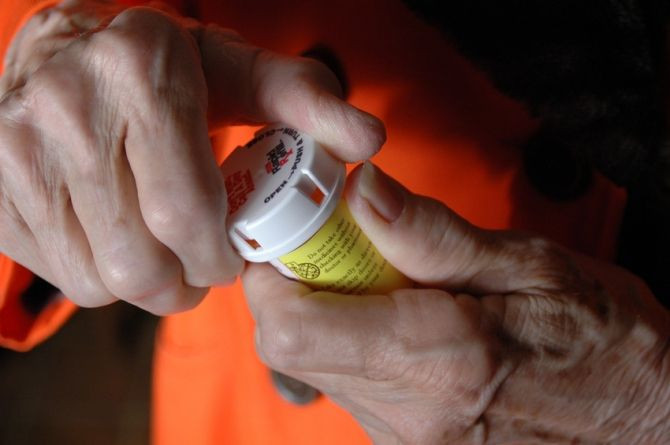4-in-1 "Polypill" to Prevent Heart Disease Could Save a Third of All Over-50s, Extend Life by 11 Years

A four-in-one pill that significantly reduced the risk of heart disease by cutting blood pressure and cholesterol should be made available for all adults over the age of 50, according to new findings from a small British study.
Leading scientist Professor Sir Nicholas Wald, who developed the polypill used in the study, claims that if just half of people over 50 took the tri-layered tablet, which contains a three blood pressure lowering medicines, amlodipine, losartan and hydrochlorothiazide, and a cholesterol-busting statin, simvastatin, then nearly 100,000 hears attacks and strokes would be prevented each year in the UK alone.
Researchers from the Wolfson Institute of Preventive Medicine at Queen Mary, University of London found in a three-month clinical trial that a single polypoll significantly lowered blood pressure and cholesterol levels in 84 study participants who were all 50 and older with no history of cardiovascular disease.
Participants were assigned to the polypill for three months and then a dummy pill for three months in random sequence.
Study results, published in the journal PLoS ONE on Wednesday, indicated that participants experienced a 12 percent reduction in blood pressure and a 39 percent reduction in LDL cholesterol or "bad" cholesterol, reverting their levels back to those typically seen in 20-year-olds.
"The health implications of our results are large. If people took the Polypill from age 50, an estimated 28 percent would benefit by avoiding or delaying a heart attack or stroke during their lifetime; on average, those who benefit would gain 11 years of life without a heart attack or stroke," Dr. David Wald, principal investigator of the study, said in a statement.
Researchers said that the latest randomized trial is the first to test a polypill in participants selected on the basis of age alone, suggesting that everyone in the older population may be able to reduce the risk of first heart attacks and strokes by simply speaking to their pharmacist, who would ask their age and what medication they are taking before dispensing the drug, without going to their doctor for a series of medical examinations or special tests.
"Our trial shows that the predicted effects of the Polypill can be achieved in practice. The expected impact on preventing what is now the world's leading cause of death is large – about a two-thirds reduction in heart attacks and strokes," Wald said.
"The Polypill concept is a major public health advance. This study shows that it works. The Polypill should be made generally available as a matter of urgency," Professor David Taylor, Professor of Pharmaceutical and Public Health Policy at University College London, and a participant in the trial, said in a statement.
"I welcome the opportunity to substantially cut my risk of having a stroke or heart attack without the disempowering fuss and bother usually required to obtain preventive medicines," he added.
Researchers noted that while patients experienced some side effects when taking the pill, like muscle aches caused by the statin, none of them had stopped treatment.
Because the trial only involved 85 patients, results from the study are unlikely to be viewed as conclusive by the scientific community and government regulatory agencies. However larger trials, made up of hundreds of participants, are now being conducted in India.
Published by Medicaldaily.com



























